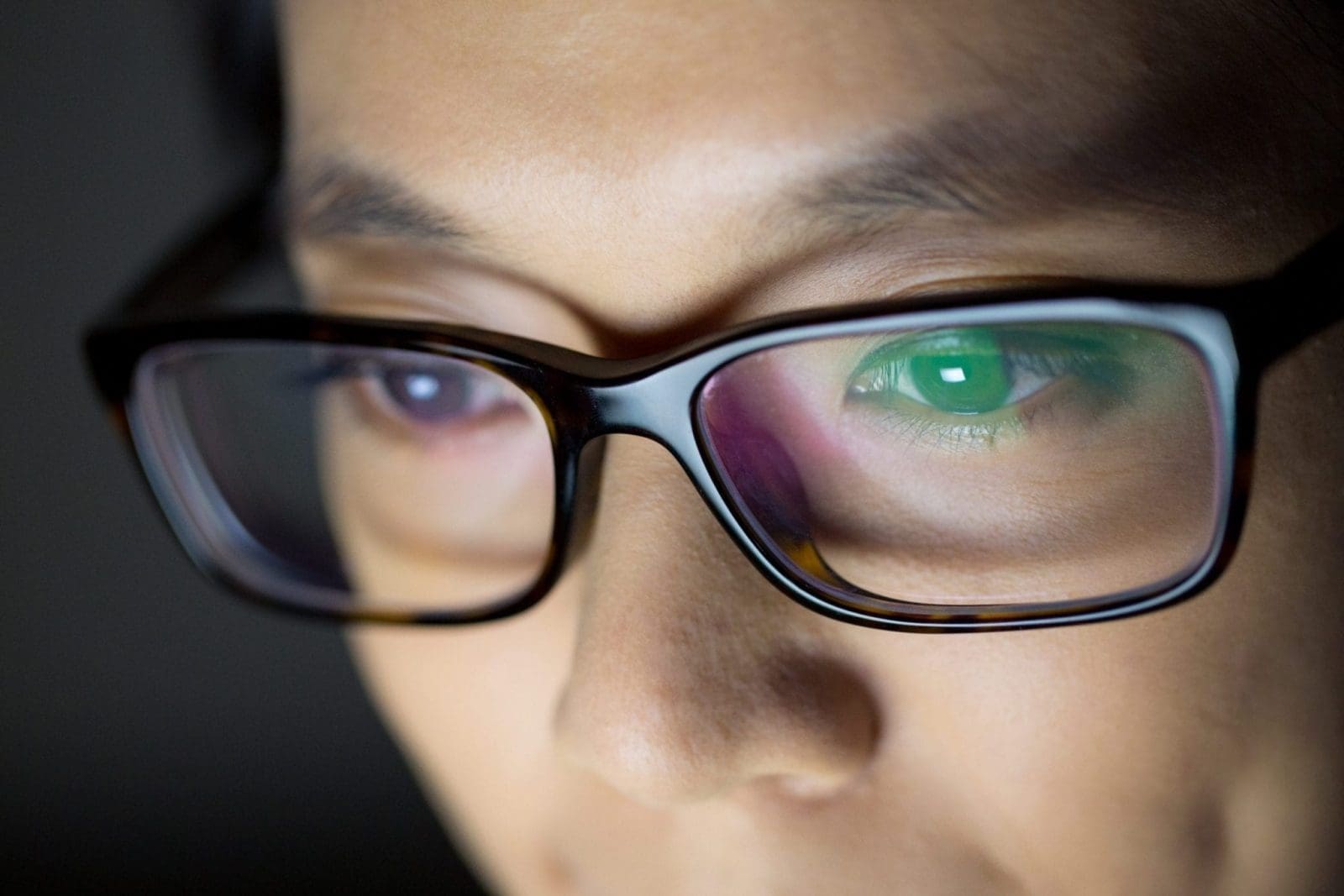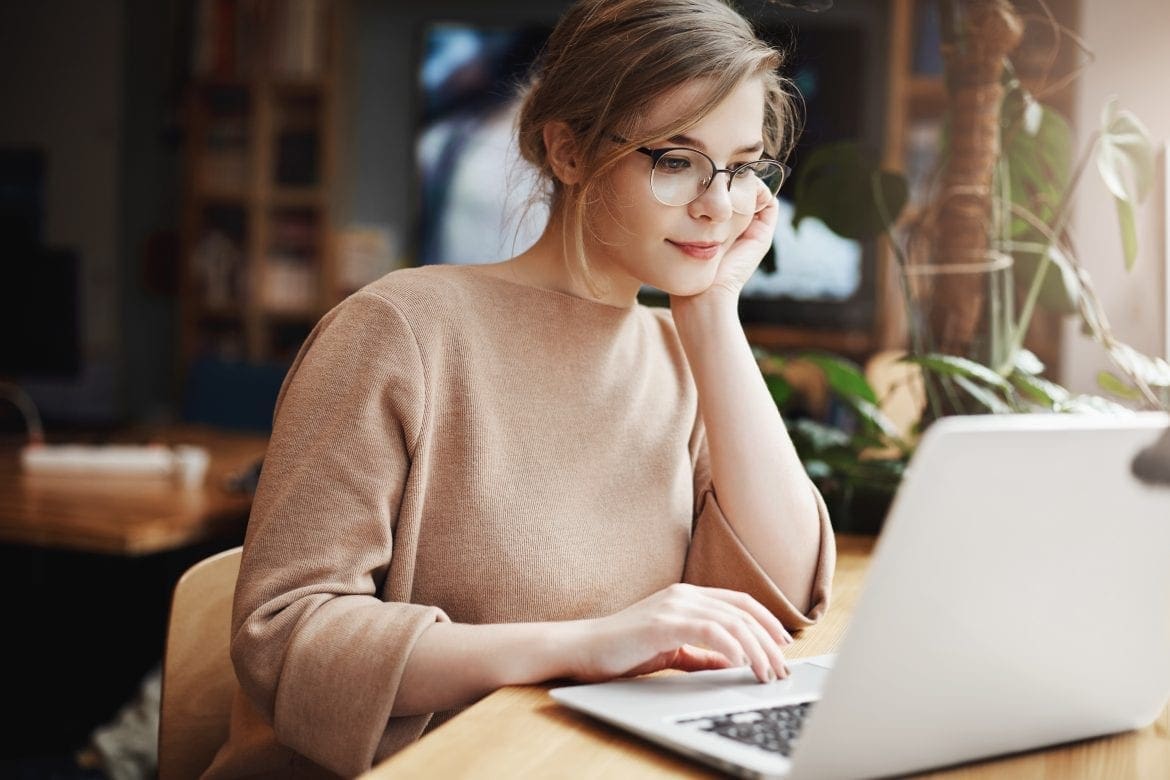When I was in college, I went through a period of time when I was experiencing chronic headaches. I was certain that it was from eye strain—and the pocket-sized book of Emily Dickinson poetry I was assigned to read by a professor wasn’t helping. After a trip to the optometrist, I walked away knowing that I had near perfect vision, but she did suggest I try limiting my screen time and implementing the 20-20-20 rule. Looking up every 20 minutes at something at least 20 feet away for 20 seconds.
I was constantly on my laptop—taking notes in class, writing papers, doing research. As an English major, my head was always buried in a book that I downloaded on Kindle. Outside of school, I scrolled through my social media feed like any good millennial. And at my job, I worked an eight-hour shift in front of a computer as a receptionist. The hours added up, and I could feel my eyes paying the price. I wish I had known about blue light blocking glasses then.
More recently, I’ve found myself in a similar situation with my screen time being at an all-time high. During the slowing down of the coronavirus spread, many of us have experienced this due to things like additional videoconferencing while working from home. You might also find yourself watching more tv while in quarantine, being more active on Instagram or playing more video games. On average, American adults spend more than 11 hours per day watching, reading, listening to or simply interacting with digital screens.
Which is why I’ve been talking non-stop about wanting to try blue light blocking glasses. They claim to prevent eye strain due to blue light, and can even help you sleep better. Are they just a bunch of buzzwords strewn together, or the answer to all my problems? Let’s find out together.
What is Blue Light?
In the simplest of terms, blue light is the type of light emitted by most digital screens. What causes concern in comparison to red or yellow lights, for example, is that blue light is not filtered out by the lens in your eye. It’s also the shortest wavelength visible to the human eye, which makes the content of your tv, laptop, smartphone or tablet harder to see and causes stress and tension.
How Does it Affect the Eyes and Body?
Close proximity to screens and the length of time we spend looking at them can result in something called digital eyestrain. Exposure to blue light specifically can lead to premature aging of the eyes and decreased vision. Your eyes might also feel dry, irritated or have trouble focusing.
There are also physical discomforts you could experience, like my aforementioned headaches. Or you may have trouble falling or staying asleep if you’re engaging in screen time before bed. Blue light messes with the body’s circadian rhythm, and our brains naturally associate blue light with daytime, instead of night. It also suppresses melatonin production in the body which regulates one’s sleep cycle.

What are Blue Light Blocking Glasses?
Blue light glasses are specially crafted with blue light blocking lenses, and are typically sold as non-Rx, prescription and readers. The lenses themselves are able to filter out the transmission of blue light, as well as eliminate glare.
Do They Really Work?
In theory, yes, they should work. In practice, I’ve read mixed reviews—but intend on giving them a go for myself and reporting back. While there hasn’t been a whole lot of official research done or data that proves blue light blocking glasses are beneficial, there’s also no detriment to trying them out either.
Where Can I Buy Them?
In the era of social distancing, there are a number of online retailers you can still purchase blue light blocking glasses from. For some businesses like Warby Parker, they offer the option of adding blue light lenses to their frames for an additional price, while Diff, Quay and Felix Gray include the lenses. Here are a few of our faves places to shop:
Diff Eyewear
Warby Parker
Quay
Felix Gray
About the Author/s
Abby is The Digest's Managing Editor. She spends her time looking at dogs on Instagram and eating her way around Jersey City.
